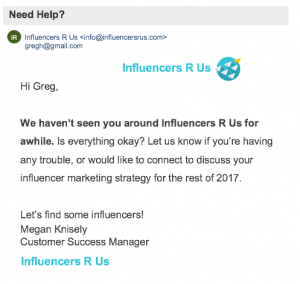— June 27, 2019
Why aren’t Your SEO Efforts Producing ROI
Search engine optimization is a good investment for most companies because when done correctly and well, it brings in a steady stream of leads that convert to clients. It works for you 24/7, whereas PPC advertising stops working the second you stop paying for it. But, a lot of SEO efforts aren’t what you expect them to be – and if your SEO isn’t producing the return on investment you’d hoped for, there are several reasons why that could be the case. Let’s take a closer look at five of the most common reasons you’re not getting the most of your SEO campaigns.

Your Expectations are Off
SEO takes skill, expertise, and most importantly time and effort. It’s unreasonable to expect the average campaign to produce results before it hits the four to six month mark, and that’s after a great deal of research and making adjustments along the way. Every SEO campaign is different, but a good standard SEO campaign flow generally looks like this:
- Month one: Research and discovery
- Month two: Technical SEO work
- Month three: Content creation
- Month four: Optimization and link profiling
- Month five: Social media integration and campaigning
The real impact doesn’t begin until well into the second month, and then Google must factor in the changes. Re-indexing, especially on a new site, can take up to two weeks. Typically, it isn’t until the sixth month when the adjustments are already in place and Google has had a chance to register them that you should attempt to determine how successful the campaign was. Measuring before then could skew the results and may produce inaccurate ones at that.
You’re Not Spending Enough Money
Good SEO takes money. The more you spend doesn’t necessarily mean you’ll get better results faster, though. You must be working with a credible agency to get good results – regardless of how much money you’re spending. But most of the time, even the most reputable agencies can’t get good results without a substantial budget.
According to a survey from Moz, 10% of clients are spending less than $ 500 a month, 27% are spending between $ 500 and $ 1,000, 29% are spending between $ 1,000 and $ 2,500, 20% spend between $ 2,500 and $ 5,000 a month, and 15% spend between $ 5,000 and $ 10,000. The prices generally reflect the level of difficulty and scope of the project.
The bottom line is that a budget less than $ 500 just isn’t enough to take the kind of action that will produce measurable results. Increase your budget while monitoring for changes over a period of three to six months. If you cannot increase your budget, adjust your expectations and strategies so that you’re putting things together as you can. Focusing solely on content creation and improvement is more effective as single investment rather than spreading the budget too thin by trying to do too much at once.
Your Content Needs Improvement
Google wants to deliver quality results to their users – by providing content that corresponds to what they are looking for, and helps them accomplish what they set out to do. Some queries are looking for information, some are looking for navigation, and some are transactional. You must be able to identify the intent behind the keywords and use that intent to structure your content.
Not only this, but your content needs to be well-written in terms of spelling and grammar. Too much bad content – either in terms of readability or in terms of relevancy and intent, and you’ll have trouble gaining any kind of rank. Blogging every day is pointless if you don’t offer your readers something of value.
Your Backlink Profile Needs Work
The inbound links to your site matter greatly to Google. If the quality of the sites linking to your site is poor, you won’t get good results from your link building efforts. It’s important to build links to your site, of course, but if they don’t come from good sources, structures, and have good context, then it won’t help you at all. In fact, it can hurt you if your backlink profile is fully of spammy sites that are manipulative. Too much of this can earn you a penalty which could temporarily, or even permanently remove your site from the organic search results.
Check your site’s backlink profile with a tool like Open Site Explorer to look for any toxic links, and then take steps to remove them or disavow them.
Your Competition is Working Harder
When it comes to SEO and your competition, you’re both working toward the same goal, and ultimately, only one of you can win. Even when you’re investing enough and putting the right effort in, your competition just manages to do it better, leaving you wondering why you’re not getting the ROI you expected.
This is really a misconception more than anything. Your competition may get ahead of you occasionally, and sometimes even stay there for a long time. But that doesn’t mean your efforts aren’t making a difference and paying off. Good SEO efforts, on a continuous basis, is what helps you keep you from sliding back in the search results, and possibly out of the picture completely when the competition experiences a growth spurt. If your SEO efforts weren’t giving you any kind of ROI, you’d be far worse off.
If your competition seems to be beating you all the sudden, wait it out to see if the rank improvement holds. SEO is constantly changing, and early on in the campaign it is volatile and fluctuation is common. Chances are, you’ll see the ranks shift again.
When you begin any kind of SEO campaign, be sure you conduct a thorough competitive analysis so you know what you’re up against. This will help you in developing the best strategy for your budget and goals, which will also help in terms of setting reasonable expectations. Often times, trying to handle SEO on your own, especially if you don’t have a background in digital marketing, will leave you spinning your wheels without results.
Digital & Social Articles on Business 2 Community
(9)










